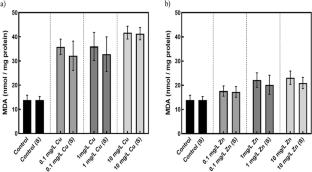The Role of Reactive Oxygen Species from Heavy Metal: Effect on reactivity of Fish and Defensive Mechanism of Antibiotic Resistant Bacteria in Aquatic Environment
Abstract
Reactive oxygen species (ROS) frequently detected in water systems require thorough investigation due to their widespread occurrence and potential health risks. This study sought to clarify the impact of ROS on zebrafish—a widely-used model organism in aquatic toxicology—and antibiotic-resistant bacteria. We explored how ROS exposure affects zebrafish brain activity, uncovering a notable increase in abnormal cognitive function, which points to possible neurological disruption. Moreover, the elevated ROS production, especially from heavy metals in natural water systems, induces 'oxidative stress,' which not only challenges antibiotic-resistant bacteria but also promotes biofilm formation and facilitates plasmid transfer. Unlike previous studies that primarily focused on heavy metal toxicity, our research highlights the role of free radical generation from metal-environment interactions. The development of innovative toxicity assessment models is imperative for accurately evaluating the ecological risks of these contaminants. This study emphasizes the critical need to understand the dual impact of ROS on zebrafish and antibiotic-resistant bacteria, guiding the development of strategies to mitigate their ecological and public health consequences in aquatic ecosystems.


 求助内容:
求助内容: 应助结果提醒方式:
应助结果提醒方式:


